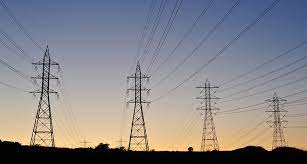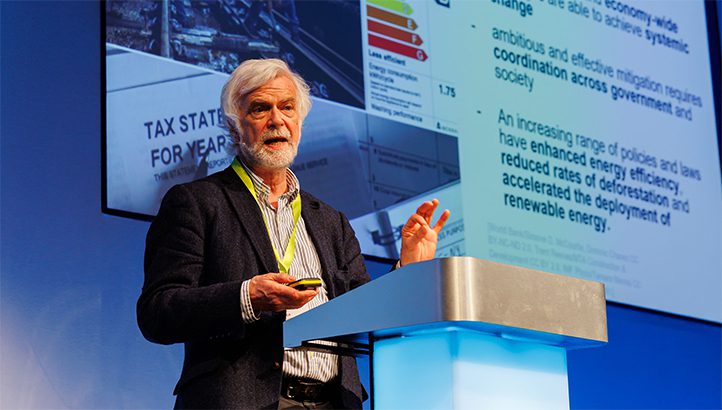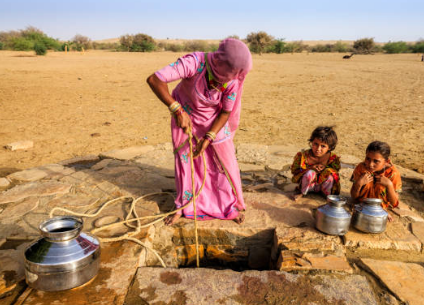
Social media has been flooded with false claims suggesting that the BBC and other broadcasters have been misreporting temperatures in southern Europe during an ongoing heatwave. GB News presenter Neil Oliver accused the BBC of "driving fear" by using "supposedly terrifying temperatures," claiming they were obtained from ground temperatures rather than air temperatures. However, BBC Weather confirmed that their temperature reporting and forecasting are based on internationally agreed standards, utilizing thermometers placed in Stevenson screens at a height of 1.25m to ensure accurate readings

The Australian Energy Market Operator (Aemo) has reported a significant decline in emissions and wholesale electricity prices in Australia's national electricity market (NEM). According to Aemo, emissions from the electricity grid decreased by over 6% in the June quarter compared to the same period last year, reaching a record low. Additionally, wholesale power prices in the NEM averaged $108 per megawatt hour during the same quarter, marking a nearly 60% drop from the previous year, which saw a short-lived energy crisis that led to a market suspension.

The Finland-based startup, 18 Wheels developing the world's first eco-friendly all-terrain vehicle (ATV). The ATV is powered by a hydrogen fuel cell, which produces no emissions and is very quiet. It also has a range of over 200 miles and can be refueled in minutes.

Professor Jim Skea, a British expert in sustainable energy from Imperial College London, has been chosen as the new chair of the Intergovernmental Panel on Climate Change (IPCC). His appointment comes at a critical juncture in human history when urgent action is required to address the escalating climate crisis. Skea, who co-chaired the IPCC's recent report on climate solutions, expressed humility at being elected during a meeting in Nairobi, Kenya, succeeding South Korean economist Hoesung Lee, who served as chair for nearly eight years.

Italy is facing the devastating impact of extreme weather, with wildfires sweeping through the southern region of Sicily and violent storms lashing the northern regions. The wildfires in Sicily have caused the temporary closure of Palermo airport due to scorching temperatures reaching 47°C. Tragically, seven people have lost their lives in the past 24 hours as a result of these natural disasters.

The latest State of the Climate report by the World Meteorological Organization (WMO) highlights the increasing threat of climate change in Asia, with rising temperatures, melting ice and glaciers, and rising sea levels leading to socio-economic disruptions in the region. The mean temperature over Asia in 2022 was the second or third warmest on record, with a significant deviation from the average temperature. This warming trend has serious implications for the region.

The delayed onset of monsoons in India this year, coupled with lower-than-normal rainfall predictions, heightened public anxiety about climate change and extreme weather conditions. The recent monsoon deluge led to severe floods, prompting the India Meteorological Department (IMD) to issue alerts for several states. The climate crisis is not only causing environmental disruptions but also posing a serious human health crisis in India.

India is a major agricultural country, and its food security is essential for the country's economy and for the well-being of its people. However, climate change is posing a number of challenges to India's food security.

The United Nations body responsible for assessing climate change science, the Intergovernmental Panel on Climate Change (IPCC), is set to choose a new leader this week. The elected chair will serve for the next five to seven critical years, during which temperatures are expected to reach 1.5 degrees Celsius above preindustrial levels. Among the four candidates vying for the top position in Nairobi, history will be made as the first women candidates participate in the IPCC's 35-year existence.

Wildfires are ravaging at least nine countries around the Mediterranean as scorching temperatures, dry conditions, and strong winds fuel the flames. Algeria has been hit hard, with fires spreading across 15 provinces and claiming the lives of 34 people. Witnesses describe the fires as resembling "blowtorches," leaving behind destruction and evacuations. The situation is also dire in Tunisia, Syria, Italy, Greece, France, Montenegro, and Portugal.